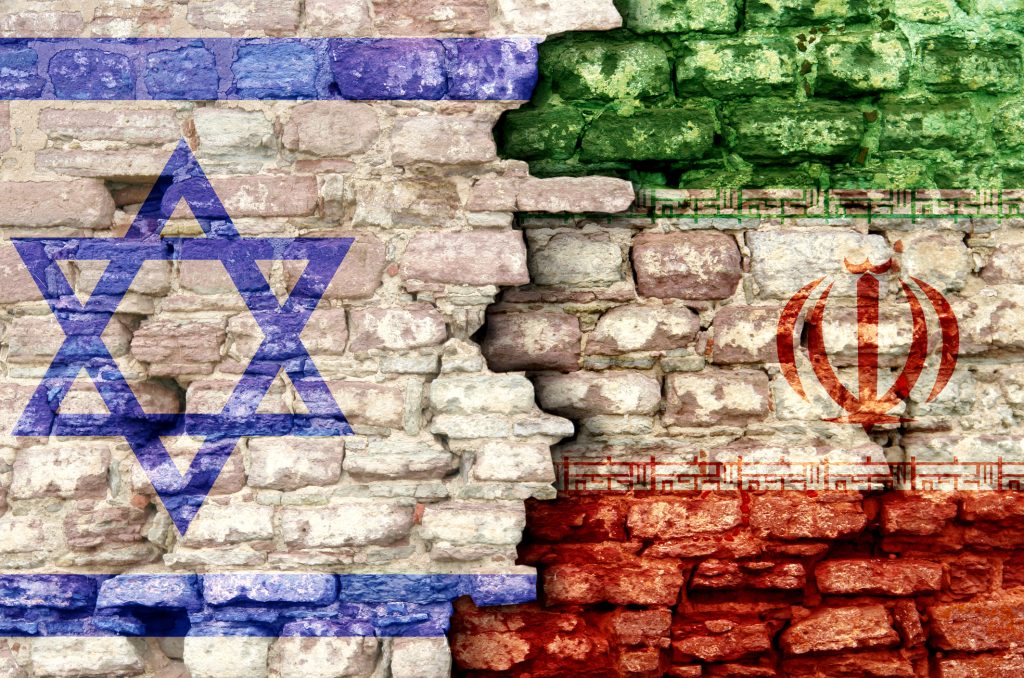
Hostility between Israel and Iran has potentially reached a tipping point. They have been conducting covert operations against each other for years, but Israel’s recent drone attacks on Iranian military facilities in the province of Isfahan were the most daring move yet. Tehran has promised retaliation at a time of its choosing. The two protagonists are now closer than ever to a major confrontation, by design or by accident. A war would not be confined to them. It could easily set off a devastating regional inferno with implications far beyond the Middle East.
US sources have
confirmed that Israel was responsible for a series of attacks by bomb-carrying drones on military sites in Isfahan, where Iran’s nuclear facilities are located, on 28 January. The two sides have been at loggerheads since the advent of the Islamic regime in Iran 43 years ago and its denunciation of Israel as an expansionist ‘Zionist state’. But Israel’s latest operation was its first direct air attack on Iranian soil.
Up to that point, the arch foes had largely contended with a shadowy war. Israel acted remotely to diminish Iranian military and intelligence capability. Its actions involved targeting Iranian nuclear scientists and killing several of them, including the father of Iran’s nuclear program, Mohsen Fakhrizadeh, in 2020, and launching cyberattacks on Iranian nuclear plants, the biggest of which was the Stuxnet computer virus, in 2010, which damaged the Natanz facility. It also assassinated a few top officers of Iran’s powerful Islamic Revolutionary Guard Corps, bombed Iranian targets in Syria and Lebanon on an ongoing basis, and hit or neutralised Iranian oil or cargo ships. This has all been part of an Israeli strategy to ensure that Iran is prevented from developing a military and nuclear capability that poses a threat to Israel.
In turn, Iran armed allied Lebanese Hezbollah to the teeth and supported the Palestinian Islamic movement Hamas and Islamic Jihad in Gaza against Israel. It also targeted Israeli ships in the Persian Gulf and the country’s Mossad intelligence operatives and embassy personnel wherever and whenever feasible. Many alleged Iranian intelligence operations against Israeli targets were reported in the Middle East, Asia, Europe and Latin America. In addition, acting through Hezbollah, it flew drones over Israel and backed operations on the Syrian border of the Israeli-occupied Golan Heights. It also backed Hezbollah’s encounters on the Israeli–Lebanese border. All the while, it sought to obtain intelligence about Israeli capabilities in a variety of ways and means.
In the process, Iran has strengthened its ties with Russia and China to rebuff Israel–US pressure, but in a complicated regional setting. Tehran has operated in alliance with Moscow in support of the Bashar al-Assad regime in Syria, backed Russia’s Ukraine aggression politically and materially, and signed a long-term agreement of strategic cooperation with China.
Israel has endeavoured to have good relations with China, involving intelligence and military cooperation, and to avoid upsetting Russian President Vladimir Putin. It has sought to promote itself as a mediator in the Ukraine conflict, though to no avail, and refused to join the US and, for that matter, America’s European allies, in supplying Kyiv with its Iron Dome air-defence missiles. Its approach is guided by an interest to keep Russia on side so that it can maintain access to Syrian air space to bomb Iranian targets.
Concurrently, the fear of an ‘Iran threat’ has played a critical role in normalisation of relations between Israel and some of the Arab states of the Persian Gulf (the United Arab Emirates and Bahrain, in particular) with the blessing of Iran’s other regional rival, Saudi Arabia, in a united anti-Iranian front, though at a cost to the Palestinian cause.
However, Israel’s direct drone attacks on facilities in Isfahan, the extent of damage to which is unknown, have taken the Israeli–Iranian enmity a dangerous step closer. It has occurred at a time when Israel is being run by the most right-wing government in its history, led by Benjamin Netanyahu. The new administration has vowed to do whatever is necessary to stop Iran producing a nuclear bomb, thus preserving Israel’s status as the sole military nuclear power in the region. At the same time, despite the public protests that have rocked Iran since last September, the Islamic regime has remained determined to counter Israel and its allies by accelerating its nuclear program and maintaining its regional influence in Iraq, Syria, Lebanon and Yemen as central to a broad security architecture in the region.
The scene is set for a potential war, but both sides are also cognisant of the devastating costs of such an event. This is what has deterred them so far, and one should hope that this will remain the case.
 Print This Post
Print This Post